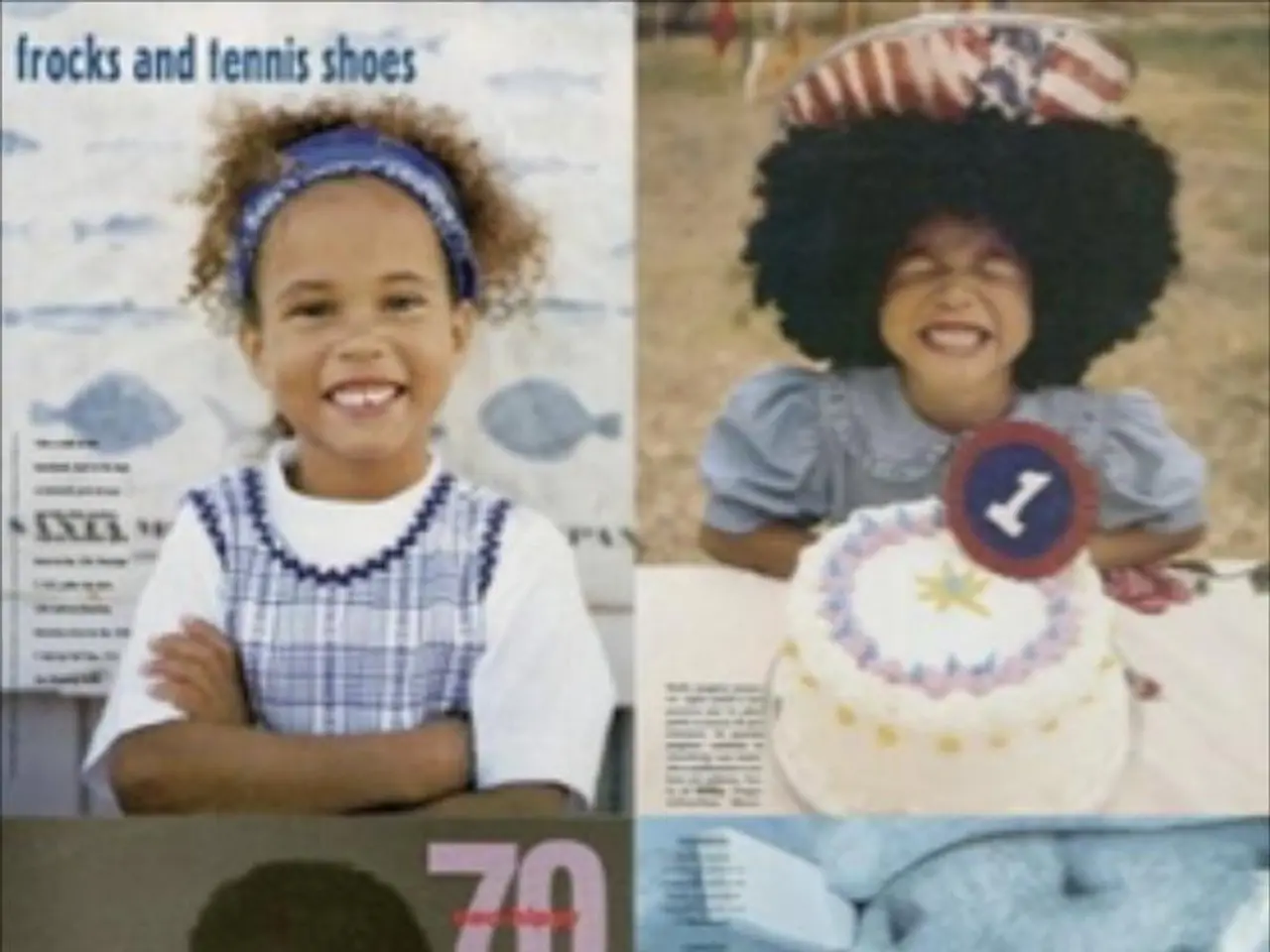Embracing diversity: Nurturing children's acceptance of various body types
In a world where harmful comments about body types are unfortunately common, even among children, it's essential to seize the opportunity to teach empathy, understanding, and acceptance. This task falls upon parents, caregivers, educators, and society as a whole.
Raising a toddler can be a powerful lesson in acceptance and body positivity. Toddlers naturally accept others without judgment, focusing on the joy of the present moment. This innocent acceptance can serve as a reminder for us all to embrace and celebrate our unique bodies.
When discussing body types with children, it's crucial to use simple, positive language, emphasizing that all bodies are beautiful and unique. This approach encourages a positive self-image and healthy body image, which plays a significant role in mental health.
Effective strategies for promoting body positivity and acceptance in children from a young age include focusing on what the body can do rather than how it looks, modeling positive body talk, creating a safe environment for emotional expression, and using developmentally appropriate books that celebrate diverse bodies.
Emphasizing body functionality and capability is key. Encourage children to appreciate their bodies for actions like hugging, playing, or growing, rather than appearance. For example, say "My arms help me hug people I love," instead of focusing on looks.
Parents and caregivers should also model positive body language and self-talk. Avoid negative comments about your own body and instead speak positively about your strength and abilities. Children internalize these messages early, so this modeling supports healthy self-esteem.
Providing open emotional spaces is another essential aspect. Let children know it's normal and okay to experience insecurities or frustrations about their bodies, fostering a safe space for sharing feelings.
Using inclusive, age-appropriate books and resources is also beneficial. Reading books such as Bodies Are Cool and You Are You helps children develop a vocabulary around body diversity and self-acceptance, making complex ideas accessible and affirming.
Parents should also actively counteract harmful beauty ideals by talking about media messages critically and supporting positive body image education, including school programs like The Body Happy Schools Programme.
Connecting body positivity with healthy lifestyle habits such as intuitive eating without judgment and involving children in preparing varied, nutritious foods can reinforce respect for their bodies in a holistic way.
This comprehensive approach—modeling positivity, emphasizing function over aesthetics, emotional openness, inclusive education, and mindful lifestyle habits—builds a strong foundation for children's lifelong body acceptance and confidence.
Lastly, remember that the language used when talking about body types can impact individuals' self-esteem and body image. Use positive language that promotes acceptance and inclusivity. Creating a positive environment at home is crucial for promoting body positivity. Avoid negative body talk, encourage self-care, and surround yourself with positive influences.
By challenging societal beauty standards, celebrating diversity, and promoting empathy and compassion, we can create a more inclusive and accepting society for all.
The influence of scientific research in health-and-wellness, specifically in the field of mental health, highlights the significant role of body positivity in a toddler's lifestyle and personal growth. Reading fashion-and-beauty books that celebrate diverse bodies, like Bodies Are Cool and You Are You, plays a crucial role in fostering body positivity and acceptance in children from an early age.
In the process of promoting body positivity, educators, parents, and caregivers must model positive body talk and self-care, providing emotional openness and a safe environment for healthy discussions. This approach supports education-and-self-development by empowering children with confidence in their unique, beautiful bodies.
By counteracting harmful beauty ideals and challenging societal norms, we can facilitate a more inclusive and diverse society, where body positivity is a norm rather than an exception. In this regard, programs like The Body Happy Schools Programme can make a considerable impact on children's understanding of body positivity and self-acceptance.
As we strive to promote body positivity and acceptance, focusing on function over aesthetics and emphasizing mindful lifestyle habits, such as intuitive eating and preparing nutritious food, will help create a holistic approach to personal growth and mental well-being.




